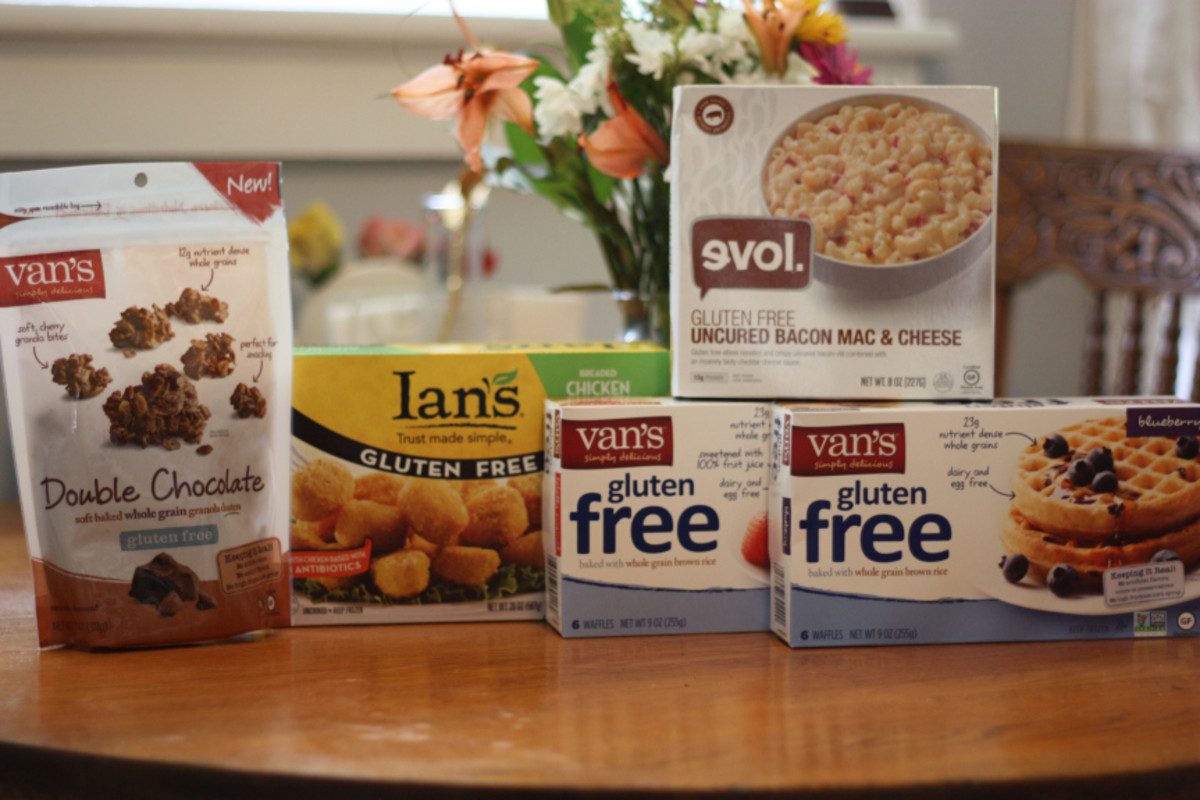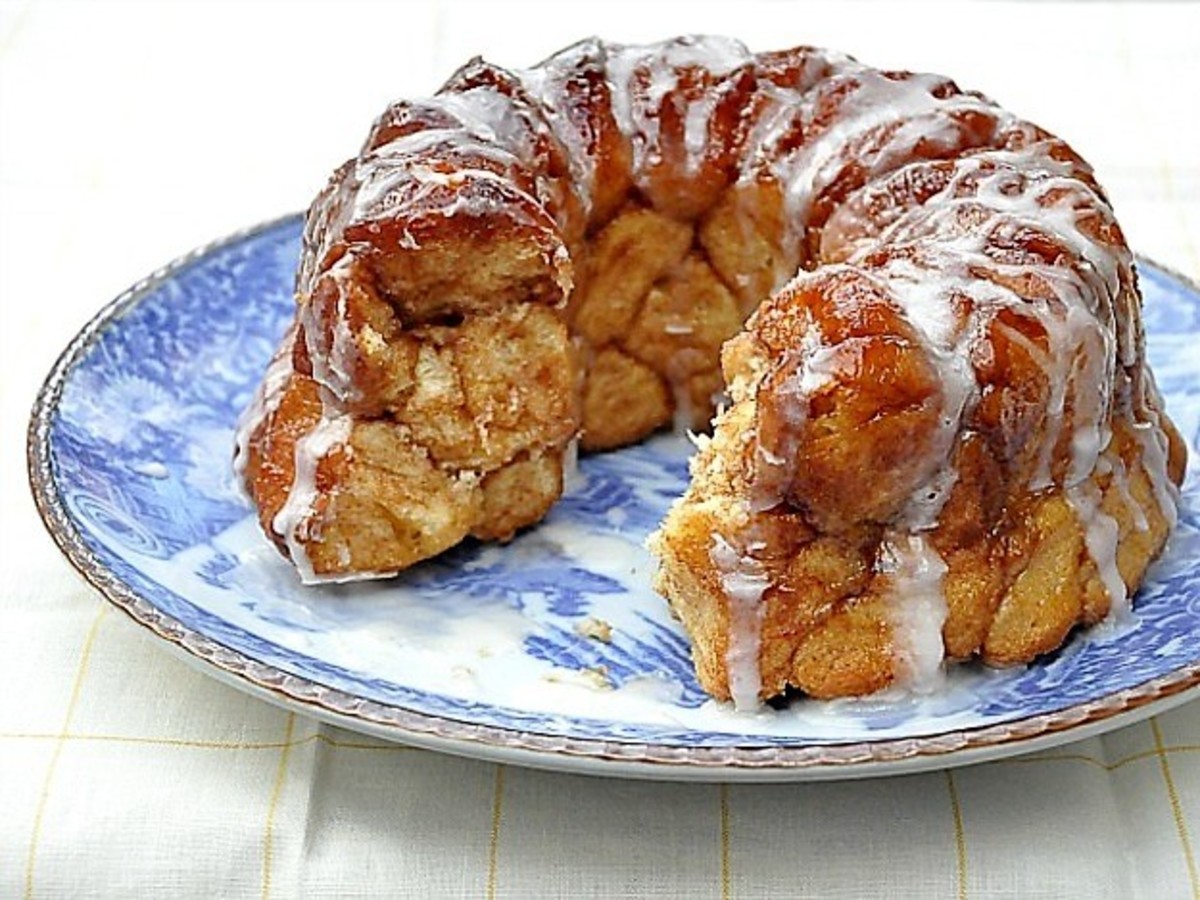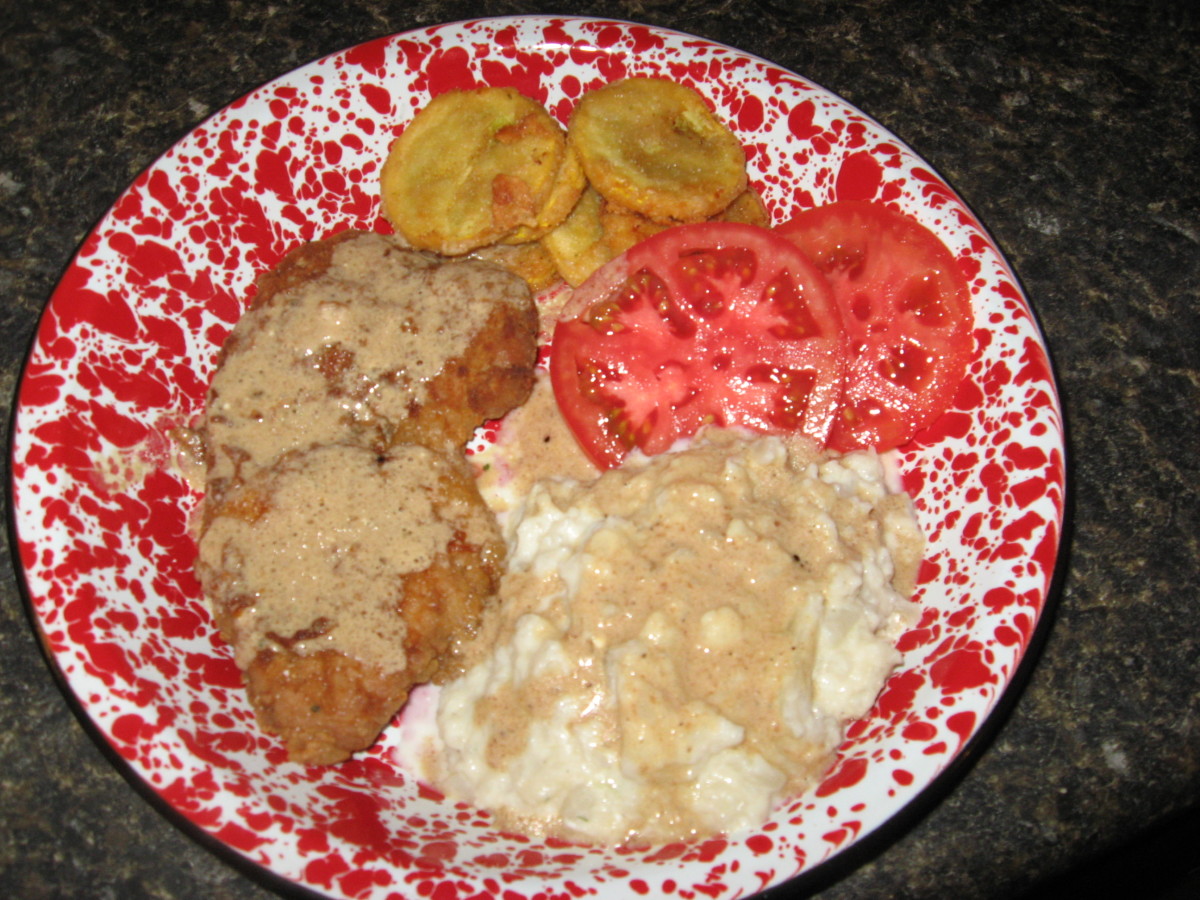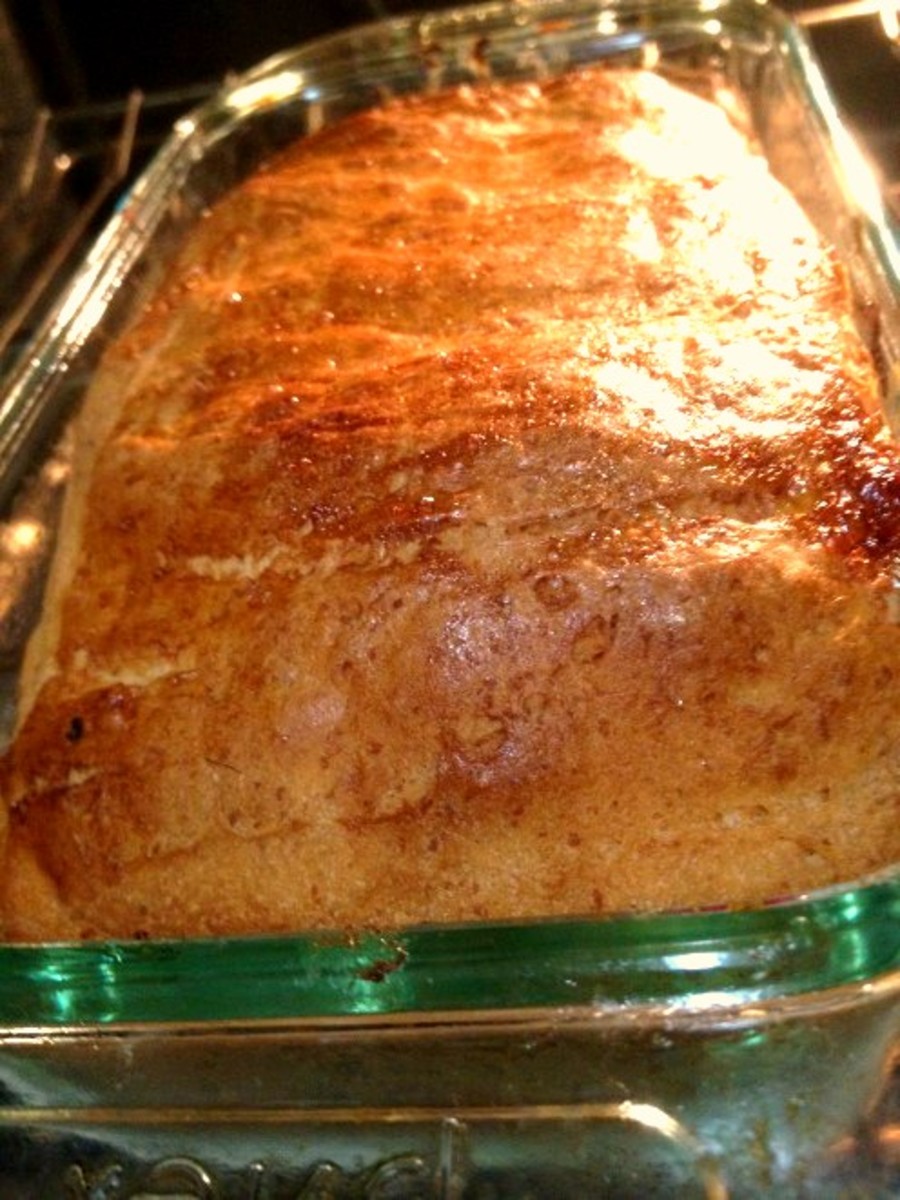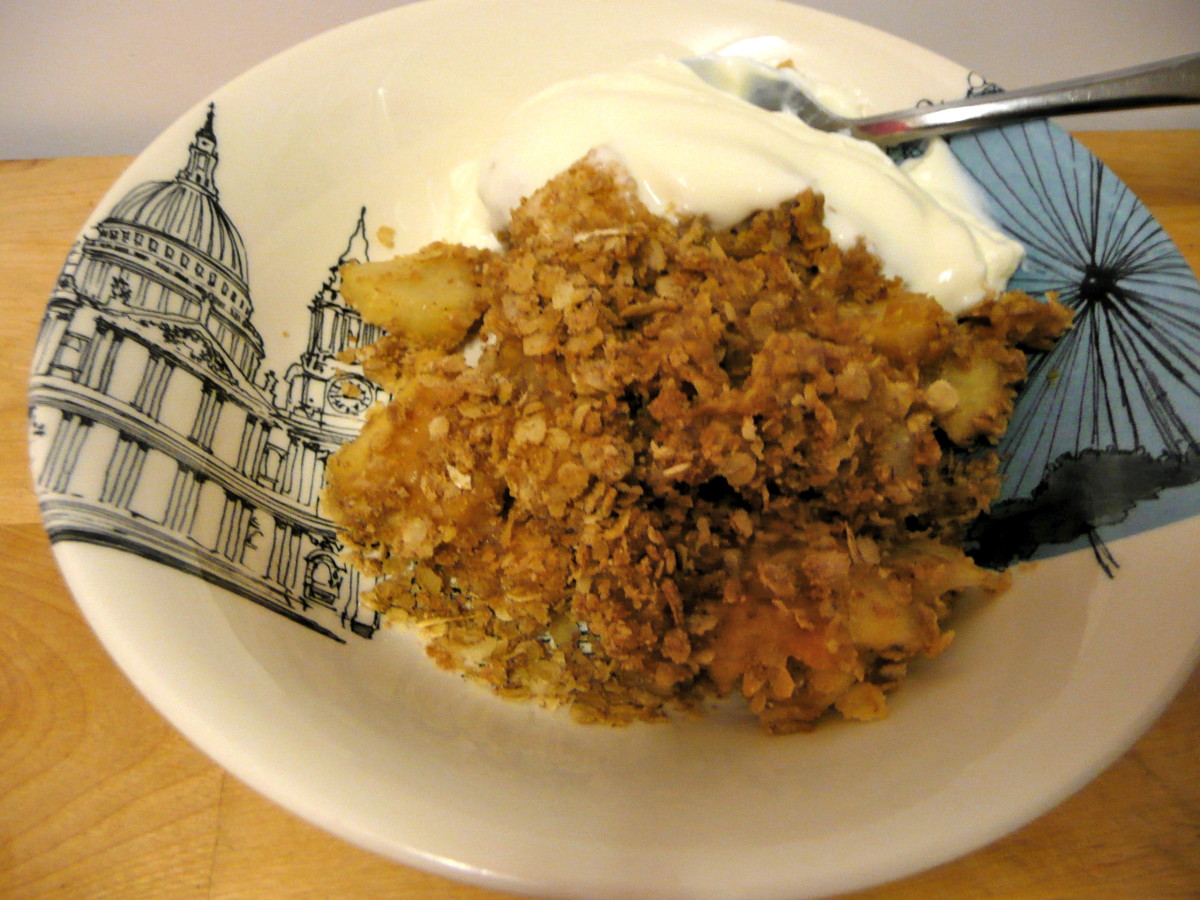Are There Naturally Gluten Free Foods?
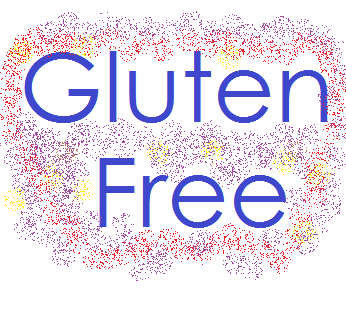
Dietary restrictions are never easy. It's not fun to limit your diet, and going to the grocery store? Well, shopping for a limited diet seems overwhelming. How do you find safe food? What are you going to eat? When it comes to going gluten free, at least, shopping sounds relatively easy. Just buy the products with a gluten free label. Choose gluten free bread, gluten free pasta, gluten free cookies, gluten free sauces...But when you get to the grocery store, you quickly realize that gluten free shopping isn't nearly as affordable as one might imagine. And it's a lot more expensive than you might have braced yourself for.
Gluten is a protein found in the grains wheat, rye and barley. In some individuals, gluten triggers an autoimmune response that causes intestinal damage. This damage can cause a variety of symptoms and over time leads to malnutrition, osteoporosis and even cancer. People with this autoimmune condition, called Celiac Disease, need to avoid all forms of gluten and any cross contamination of their food with gluten grains. Some people avoid gluten because it triggers uncomfortable symptoms even without the full blown autoimmune diagnosis. There is some debate as to whether or not these individuals might have the early stages of Celiac Disease, and just haven't advanced enough to get an accurate diagnosis.
Regardless of the reason, shopping gluten free isn't as easy as it sounds. Although wheat is one of the top 8 allergens and requires labeling, barley and rye do not. While gluten free diets are increasing in popularity and voluntary gluten free labeling is increasingly common, it also confuses the consumer. Is it safer to buy the gluten free peanut butter? Why can't I find gluten free raisins? What's the difference between these two packages of Bob's Red Mill cornstarch? The answers aren't always easy for those making their first gluten free shopping trip.
If you're shopping gluten free, you need to know that not everything you buy has to bear a gluten free label. Many foods just happen to be naturally gluten free. And foods that naturally don't contain any wheat, rye or barley are not required to be labeled. The FDA expects you to be able to read between the lines of a nutrition statement. Sometimes the only difference between a product and it's gluten free counterpart is an inflated price.
Which Foods Need a Gluten Free Label?
The foods that you need to watch out for in a grocery store are ones that contain grains. Wheat products include crackers, bread and anything made with unbleached white flour including pasta. Rye and barley are also off limits. Although grains like quinoa, corn, rice, amaranth, buckwheat and teff are naturally gluten free, you need to watch out for where they were processed. SInce many mills process a variety of grains, including the gluten containing ones, flours and cereals have a high risk of cross contamination. When you shop for gluten free flour, look for flours that come from a gluten free facility or call the company and ask about cleaning processes and the risk of cross contamination.
Likewise, products made with these grains can be suspect. Flour that becomes airborne flies everywhere. Particles settle all over the place, and while they aren't a health hazard to most individuals, if you have celiac disease, just a few grains of flour can hurt. So gluten free labels on products that are made in facilities that also use regular flour are important.
Naturally Gluten Free Foods
The foods that don't need a 'gluten free' label to be safe for the gluten free shopper are much more numerous. Think about natural and unprocessed foods. Fruits, vegetables, fresh meats and dairy products are almost always naturally gluten free. You do have to keep an eye on yoghurt and cottage cheese, some are thickened with or enhanced with gluten containing grains. If a dairy product contains gluten, it will be listed on the label.
- Nuts and dried fruit are usually safe as well. While some dried fruits are dusted with a starch to keep them from sticking to each other too much, that starch is more often corn based than wheat. Plain nuts are generally safe for the gluten free consumer. Trail mixes containing pretzels or wheat flour containing crackers are not.
- Nut butters are almost always gluten free; and that includes peanut butter.
- Dried beans are gluten free. Canned beans and vegetables are also naturally gluten free.
- Chips. Although whole grains are beginning to make their way into more chip-shaped forms, there are still naturally gluten free potato chips and corn chips. You need to read ingredients, but you don't need to buy specially labeled products.
- Salad Dressing. Although there are plenty of salad dressings that include barley malt or wheat germ, gluten ingredients are not necessary in salad dressings. This is another product that does not require a gluten free label to be safe for gluten free consumers. But you do need to read the label carefully for ingredients that are gluten derived.
- Chili. If and when it's thickened with wheat products, it will appear on the label. While a gluten free label assures shoppers that the product has less than 20 ppm of gluten protein, careful perusal of the ingredient list is usually enough to make sure the product is gluten free.
- Ice Cream. Plain flavors are generally gluten free. Obviously, cookie dough and brownie bite flavors need to be carefully examined for flour. (Although there are a few gluten free versions of both out there) But vanilla ice cream is inherently gluten free.
- Popsicles. They're made with juice, sugar water, and artificial or natural colors. No gluten required.
- Condiments such as ketchup, mayonnaise and mustard are usually gluten free.
- Eggs and Margarine
- Sugar. Check the ingredients of powdered sugar, the kind made with cornstarch or tapioca starch is okay for those shopping gluten free. The kind with wheat starch isn't.
- Spices: Single spices are gluten free. Spice mixtures and seasonings rubs should be checked for barley malt or wheat starch.
- Candies: although some candy is made with wheat syrup, most aren't. Gluten in candy is clearly labeled with wheat.
- Tea. You can read the ingredient panel looking for barley malt. Unless there is barley malt (or wheat of some sort) in there, your tea is naturally gluten free even if it isn't labeled.
- Corn and rice tortillas. Tortillas can be made with wheat flour. But they often aren't. Most major brands clearly label gluten ingredients.
- Potato products. There are a few frozen and prepackaged potato mixes that contain gluten ingredients, so you need to read ingredients. But potatoes themselves, and most basic frozen potato products are naturally gluten free.
Gluten Stumbling Blocks
There are a few products out there that seem gluten free but will have gluten hidden in them. The most infamous of these may be soy sauce, which sounds gluten free. There are gluten free soy sauces out there (look for Tamari), and not all of them are specifically labeled gluten free. But they serve as a good reminder to always read ingredient lists.
Other products to watch out for are sauces of any kind (including the ones simply listing 'soy sauce' as an ingredient), vegan meat substitutes, herbal tea mixtures (which are sometimes sweetened with barley malt), boullion and broth (look for barley as well as flour), soup (thickened with flour) and lipstick.
Yes, personal care products need to be double checked for gluten free status. Lipstick and chapstick are of especial concern because they are applied directly to the mouth.

